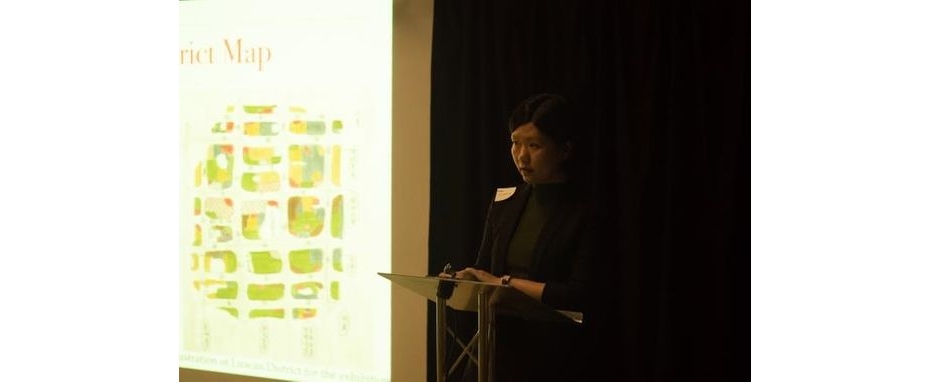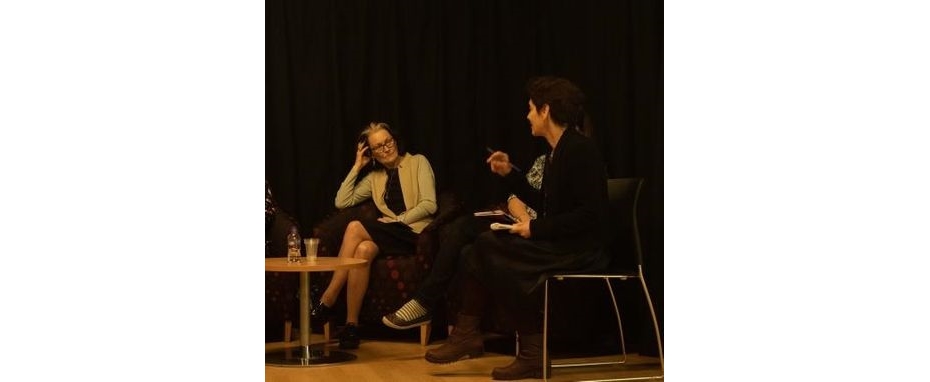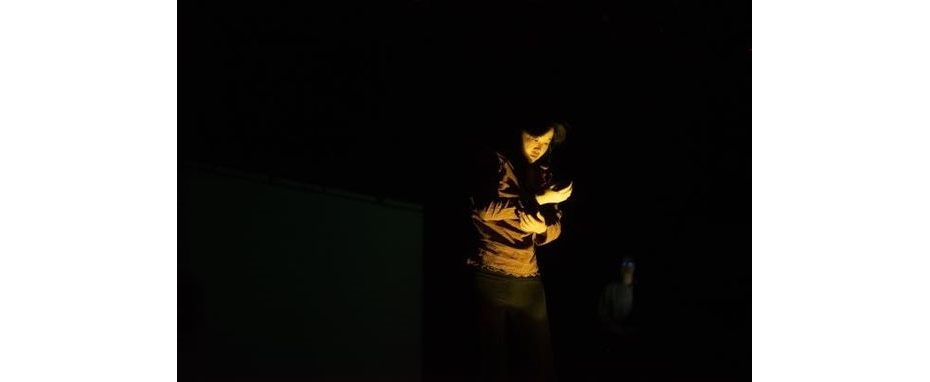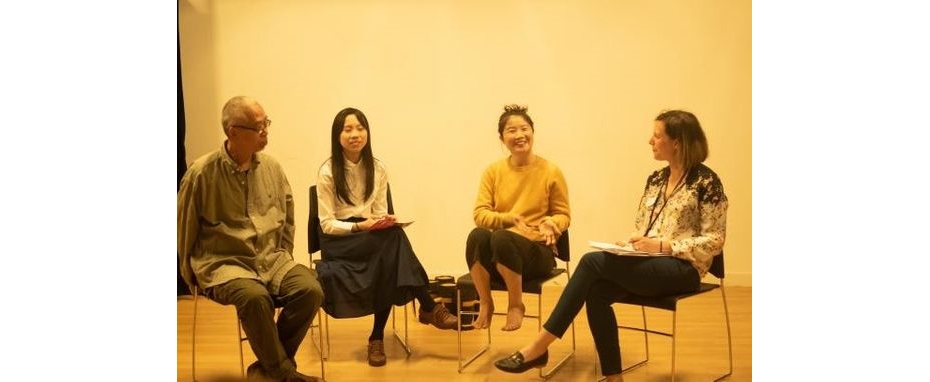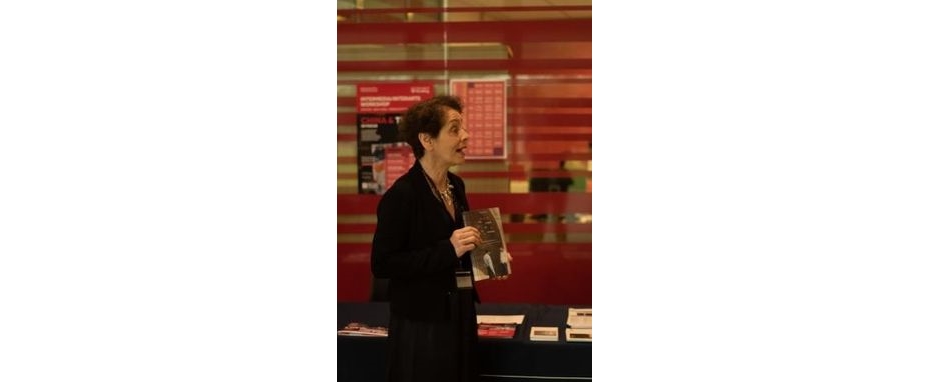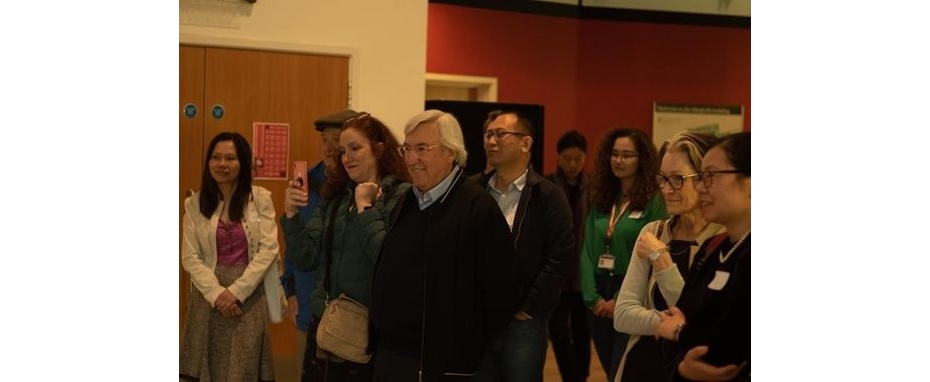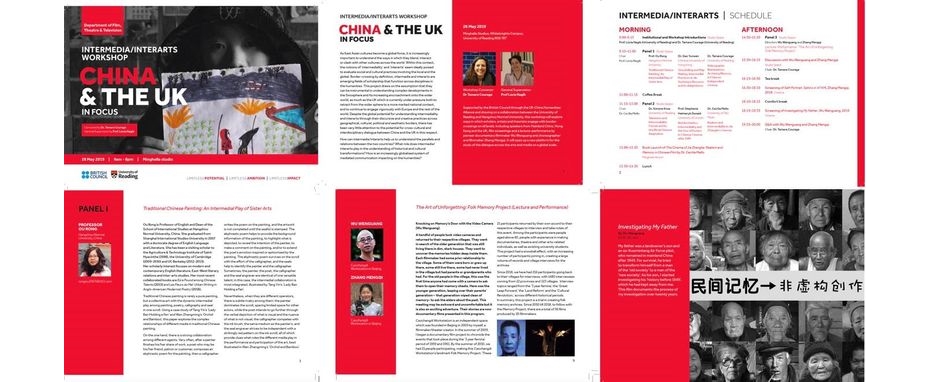Intermedia/Interarts: China & the UK in Focus
Led by University of Reading, May 2019
This workshop titled ‘Intermedia/Interarts: China & the UK in Focus’ was held at the University of Reading in Minghella Studios on 28 May 2019. Convened by Dr. Tamara Courage and supervised by Professor Lúcia Nagib from the Department of Film, Theatre and Television, the workshop was funded by the British Council, under the aegis of the UK-China Humanities Alliance.
The key objective for this workshop was to foster a cross-cultural dialogue between Chinese and UK scholars and practitioners with a specialised focus on intermedia/interarts relations within Chinese painting, literature, film, theatre and television.
As East Asian cultures become a global force, it is increasingly important to understand the ways in which they blend, interact or clash with other cultures across the world. Within this context, the notions of ‘intermediality’ and ‘interarts’ seem ideally poised to evaluate social and cultural practices involving the local and the global. Border-crossing by definition, intermedia and interarts are emerging fields of scholarship that function across disciplines in the humanities. This project draws on the assumption that they can be instrumental in understanding complex developments in the Sinosphere and its increasing encroachment onto the wider world, as much as the UK which is currently under pressure both to retract from the wider sphere to a more marked national context, and to continue to engage vigorously with Europe and the rest of the world. Despite the global potential for understanding intermediality and interarts through their discursive and creative practices across geographical, cultural, political and aesthetic borders, there has been very little attention to the potential for cross-cultural and interdisciplinary dialogue between China and the UK in this respect. How can intermedia/interarts help us to understand the parallels and relations between the two countries? What role does intermedia/interarts play in the understanding of historical and cultural transformations? How is an increasingly globalised system of mediated communication impacting on the humanities?
In collaboration between the University of Reading and Hangzhou Normal University, this workshop explored ways in which scholars, artists and theorists engage with border-crossings on all levels.
Invited guest speakers for this workshop were:
Professor of English and Dean of the School of International Studies at Hangzhou Normal University, China. Her scholarly interest focuses on modern and contemporary English literature, East-West literary relations and inter-arts studies. Her most recent collaborated books are Ezra Pound among Chinese Talents (2015) and Les Fleurs du Mal: Urban Writing in Anglo-American Modernist Poetry (2018).
Research Director for the Centre of Culture and Creativity and Distinguished Professor (Film and Media ) in the College of Arts. Immediately prior to her appointment at Lincoln she was Professor and Australian Research Council Future Fellow at UNSW (Sydney). She has served as Chair of the ARC Humanities and Creative Arts College, and Deputy Chair of the Hong Kong RAE Humanities panel. Her book, There’s No Place Like Home: The Migrant Child in World Cinema, won a Choice Outstanding Academic Title Award in 2018. Other titles include Childhood and Nation in World Cinema: borders and encounters (2017), Inert Cities: Globalization, Mobility and Suspension in Visual Culture (2014), Little Friends: Children’s Film and Media Culture in New China (2005) and Public Secrets: Public Spaces: Cinema and Civility in China (2000). Her current research looks at images of migration, detention and childhood, and she is pursuing a project with Yi Zheng on socialist feeling in Chinese culture.
Lecturer of Chinese studies and literature who specialises in intercultural relations in Chinese literature and cinema and has written on Sinophone intermediality in online literature in China.
Lecturer in Film Studies and Film Editing at the Department of Film, Radio and Television, University of São Paulo, Brazil, and Vice-Director of Cinusp ‘Paulo Emílio’. She is the recipient of a number of Research Grants, the most recent being the MOFA Taiwan Fellowship in 2017. Her research focuses on world cinema – with an emphasis on British and Chinese cinemas – and on issues of audiovisual realism, cinema and urban spaces and intermediality. She has published several articles and book chapters, co-edited the books Realism and the Audiovisual Media (Palgrave Macmillan, 2009), The 21st Century Film, TV & Media School: Challenges, Clashes, Changes (Cilect, 2016) and edited the book Phantasmagorical Realism (University of São Paulo, 2015). Her latest book The Cinema of Jia Zhangke: Realism and Memory in Chinese Film is out with Bloomsbury in 2019.
Simone sits on the board of editors for Critical Studies in Television and her publications include essays in Film Criticism, Journal of Popular Film and Television, New Review of Film and Television Studies, Historical Journal of Film, Radio and Television and the Journal of British Cinema and Television. With co-author Kai Hanno Schwind, she is currently completing the monograph Friends: A Reading of the Series for Palgrave.
In addition to building collaborations between scholars in the UK, China and Hong Kong on the topic of Chinese intermedia and interarts, we were also keen to invite guest artists and filmmakers who could expand beyond the scholarly potential of this collaboration. Originally, the proposal aimed to invite guest filmmaker Jia Zhangke to the event which would also coincide with the book launch of Dr. Cecília Mello’s latest publication (The Cinema of Jia Zhangke: Realism and Memory in Chinese Film) and the world’s first English language monograph on arguably the most well-renowned contemporary independent filmmaker in Mainland China. However, Jia Zhangke was shooting another film at the time and was regrettably unavailable.
Despite this potential setback, we managed to secure the invitation of two filmmakers and performers: Wu Wenguang and Zhang Mengqi. Wu Wenguang is a pioneer of independent documentary cinema in China and Founder of Caochangdi’s ‘Folk Memory Project’. Zhang Mengqi is a Choreographer and Resident filmmaker of Caochangdi Workstation in Beijing. She has produced eight feature length documentary films for the project. Together, they delivered several film screenings of their latest work and a lecture-performance that helped to enhance the workshop’s central objective which was to enrich the interarts and intermedial collaboration between artists and scholars in China and the UK but their lecture-performance, in particular, helped to broaden the interdisciplinary, intermedial and interarts potential of this workshop which was held in the Film, Theatre and Television department of Minghella Studios.
The presence of such a prolific documentary filmmaker from China and recent work by Wu Wenguang and Zhang Mengqi on the ‘Folk Memory Project’ helped to promote the FTT department at the University of Reading and throughout the UK.
The marketing material for this workshop was provided through an initiative called Real Jobs at the University of Reading in which a student from the Department of Typography worked closely with the organisers (Tamara Courage and Lúcia Nagib) to create the marketing material for the workshop. The outputs for this included posters, leaflets and brochures with the day’s schedule, programme notes and sponsors. The posters were advertised all over the University of Reading campus and leaflets were circulated and posted in public spaces throughout Reading town centre. The poster and brochure’s information were also used to market the workshop and the invitation of our esteemed guest filmmakers which was announced and circulated on social media including JISC, BAFTSS, Twitter, Facebook and Eventbrite.
.jpg)
Using Eventbrite as a registration tool for this workshop (http://intermediainterartschina.eventbrite.co.uk/), there were 38 registered attendees in total. Some of the attendees that I spoke to on the day of the workshop came from other departments (Henley Business School) at the University of Reading who had never attended an arts-related event in the FTT department but were interested in this workshop because of its focus on fostering stronger relationships between academics and artists in China and the UK. Other attendees were academics from all over the UK who were also interested in research on Chinese film and the interdisciplinary dialogue between academics in the humanities. Some of these attendees and public attendees knew of and so were interested in meeting Wu Wenguang in person and seeing his lecture-performance with Zhang Mengqi. Another small group of people attended due to their interest in the Bloomsbury Publishing house book launch of Cecília Mello’s The Cinema of Jia Zhangke: Realism and Memory in Chinese Film. Finally, representatives from the University of Reading were keen to meet with Professor Rong Ou to discuss future collaborations between Reading and Hangzhou Normal University.
The key technical staff for this event recorded and photographed the workshop talks, performances, book launch and Q&As. There was also a interpreter available for filmmakers Wu Wenguang and Zhang Mengqi.
In terms of outputs, Professor Lúcia Nagib and Professor Rong Ou agreed to organise a follow-up event at Hangzhou Normal University, in order to further expand academic exchanges between China and the UK around intermedial and interarts studies. The invited speakers at this workshop (Prof. Ou, Prof. Donald, Dr. Gao, Dr. Knox, Dr. Mello and Dr. Courage) have agreed to contribute to a publication collecting a selection of the proceedings held at the University of Reading and at Hangzhou Normal University.
